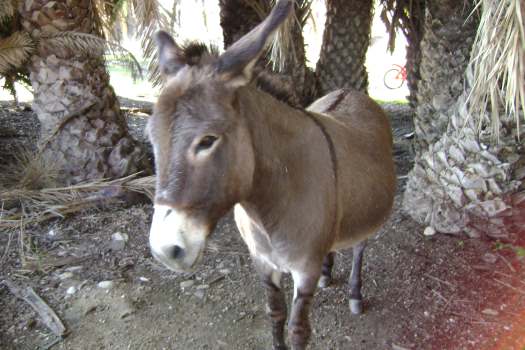
Weekly Dvar Torah: Dealing with Our Donkey
We have so much gratitude to Hashem that we are Chassidim, followers of the Baal Shem Tov (Besht) and his successors our Rebbeiim.
They revealed to us the inner part of Torah. As a result of that, our understanding is so much deeper and our lives are so much richer.
On the Posuk: כִּי תִרְאֶה חֲמוֹר שֹׂנַאֲךָ רֹבֵץ תַּחַת מַשָּׂאוֹ וְחָדַלְתָּ מֵעֲזֹב לוֹ עָזֹב תַּעֲזֹב עִמּוֹ = If you see the donkey of your enemy crouching under its load and you may refrain from helping him, you certainly must [lend a hand to] help along with him.
On a very simple level, the Torah teaches that we cannot turn away from helping another Jew, even if we hate that person, we are obligated to care for one another.
Is the Torah just telling us not to be cruel? It makes us feel a little low that we must be told such basic things.
When we learn this verse according to the inner meaning of Torah, this simple verse contains a most profound message.
The Besht taught: The letters of the word חֲמוֹר which means donkey, spells חוֹמר materiality. Inserting ‘materiality’ into the words of the Posuk, it now reads; If you will see your own materiality as being your enemy, you may decide to punish it by breaking it, rather instead you should help it and support it.
A person may see one’s body as an enemy. He can also notice that this materiality is causing the body to be lazy and crouch under his burden to fulfill G-d’s mission to refine the world by keeping Torah and Mitzvos.
Therefore, one may think that this lazy body needs to be punished by depriving it of its needs, so that one can break its crass materiality. The Torah according to Chassidus explains that instead of breaking it one should support it. And only this way your body will do what Hashem wants.
From a historical perspective, this idea was extremely revolutionary. Until the Besht many righteous Tzadikim would engage in Sigufim, forms of bodily mortification, they would fast and torture themselves in order to subdue the body to do the right thing. This was the school of Mussar. Until the Besht changed course, and he taught that we can and we must work with our body, and not against it.
In the historical long letter that the Frierdiker Rebbe wrote to his daughter Rebbetzin Chaya Mushka he writes that the Besht finished this teaching by saying; that a soul descends into a body for 70-80 years just to do one favor for another Jew materially or spiritually. One’s entire life may be just about this one time that you did a favor to another Jewish person (body).
This message is so powerful. Starting from then, the holy disciples of the Besht made it their mission to look up all their great righteous friends, and introduce them to this new way of life. Reb Mordechai, one of the great students of the Besht, walked for 6 months from village to village to seek out his friend of his youth, Reb Chaim, to introduce him to this new way of Serving Hashem. For 250 years Chassidus evolved just around this teaching which inspires us to love every Jew irregardless of his low spiritual state, or his lack of material needs. There is a good likelihood that one’s soul came down to this world just for this one act of helping someone, materially or spiritually.
Chassidus reveals to us the inner meaning and inner purpose of each individuals creation. If the soul comes into a body, there is a partnership. And if the body has needs, then you must see to it that they are filled. The body can’t live without a soul, and the soul cannot fulfill its mission without the body. They have to work in concert by supporting each other; otherwise they fail in their mission.
Chassidus teaches us about the value of every part of creation, there are no extra or spare things that we can dispose of and reject. Everyone and everything is needed and they play a role.
This way you have no enemies and you see no enemies, we all need each other. Without each other we may just miss the purpose of our souls’ descent into this world.
Have a partnership of a Shabbos,
Gut Shabbos
Rabbi Yosef Katzman












